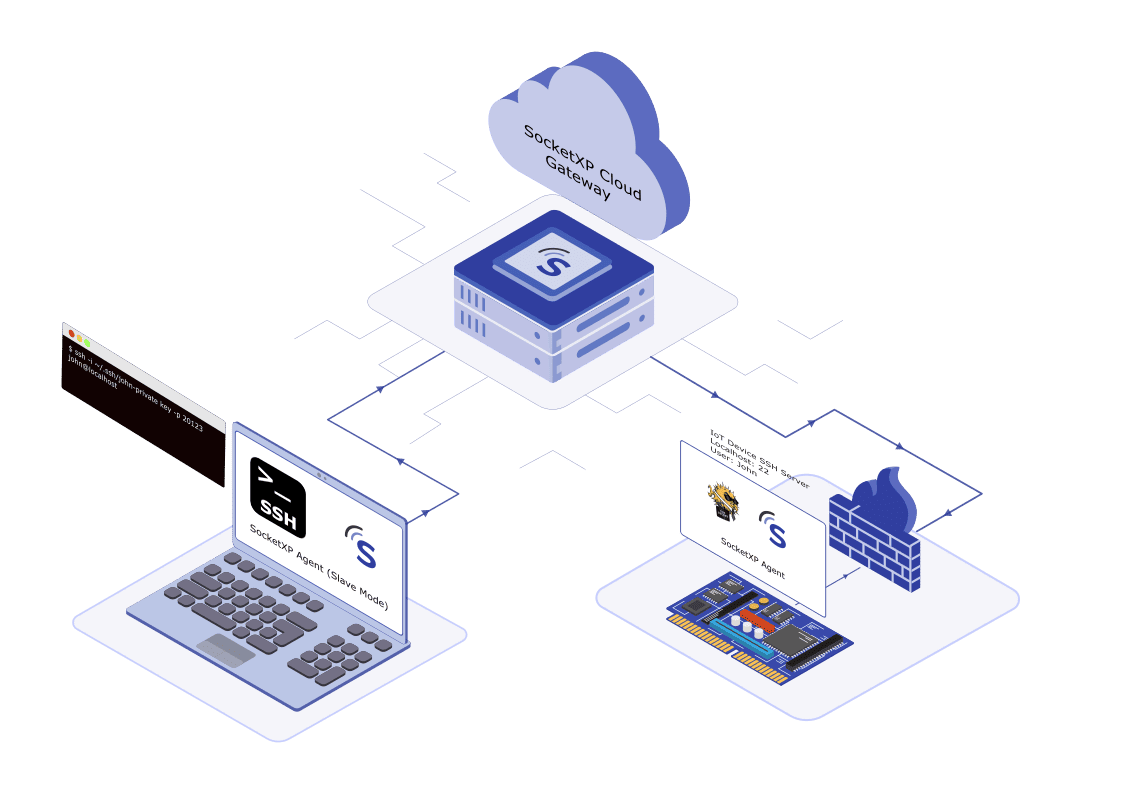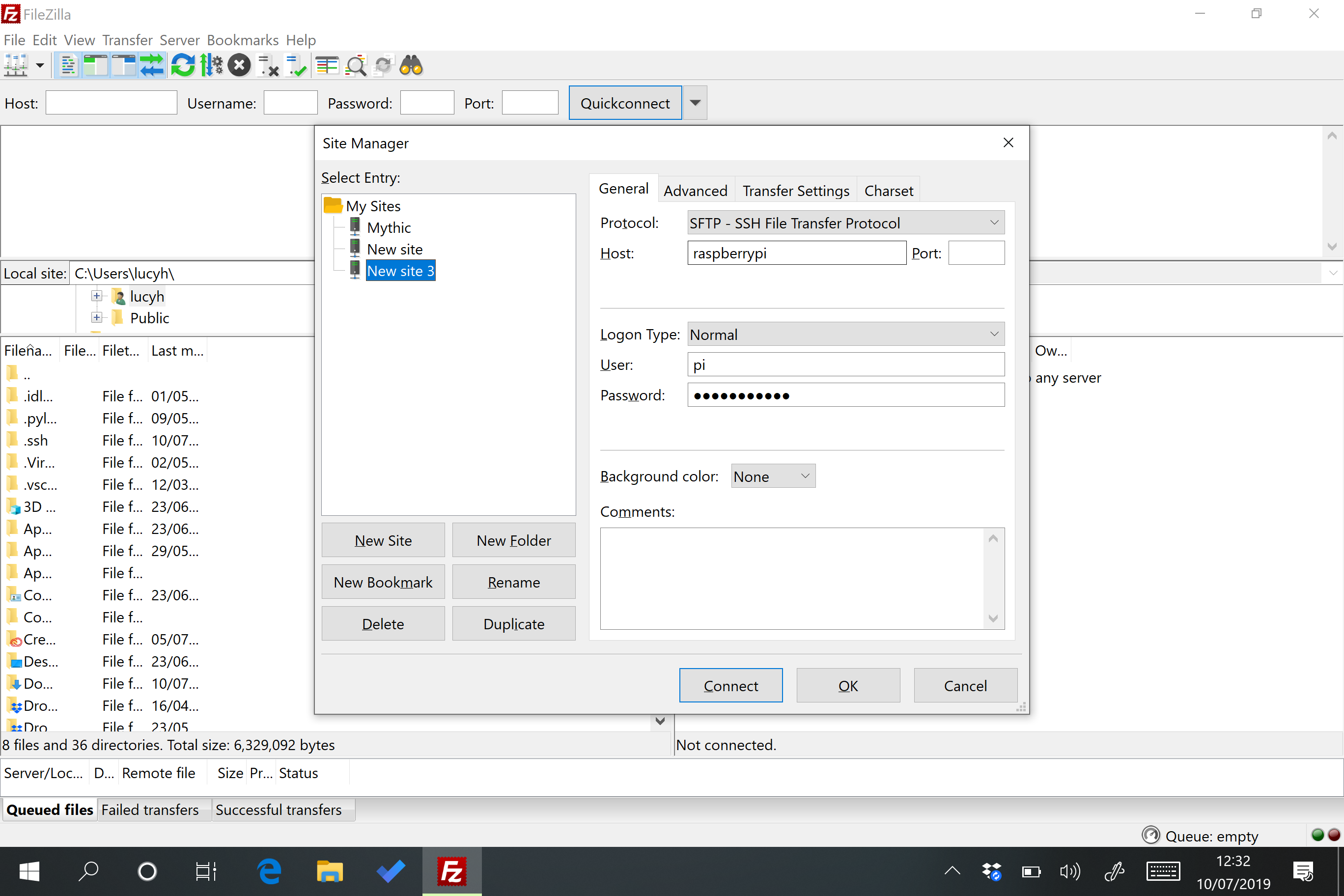Access Your Raspberry Pi Remotely With Remote IoT!
Is it possible to transform your Raspberry Pi into a remotely accessible powerhouse, allowing you to control your projects from anywhere in the world? The answer is a resounding yes, and it's easier than you might think. This guide will unveil the secrets of accessing your Raspberry Pi remotely, empowering you to manage your Internet of Things (IoT) projects with unparalleled ease and efficiency.
Imagine the possibilities: monitoring your home security system from your vacation, adjusting your smart thermostat from the office, or troubleshooting a sensor in your remote agricultural project from the comfort of your living room. This article will provide you with everything you need to unlock the full potential of remote access for your Raspberry Pi, ensuring that your IoT dreams become a reality. With remote access, the world truly becomes your control panel.
| Category | Details |
|---|---|
| Topic | Remote Access for Raspberry Pi in IoT Applications |
| Description | A comprehensive guide on setting up and utilizing remote access to a Raspberry Pi for Internet of Things (IoT) projects. Covers various methods, including the use of remoteiot free, and explores the benefits and practical applications. Includes information on downloading free tools and configurations. |
| Key Benefits |
|
| Target Audience |
|
| Key Tools & Technologies |
|
| Relevant Concepts |
|
| Date of Publication | April 19, 2025 (Based on Developpeur report02) |
| Downloadable Resources | Free tools, Windows downloads (exe), MacOS (dmg), Linux installations. |
| Related Technologies | Smart Home, Industrial Automation, Smart Agriculture, Remote Monitoring |
| Link for Reference | Raspberry Pi Foundation |
The beauty of remote access lies in its simplicity and versatility. Whether you're a seasoned programmer or a curious hobbyist, setting up remote access for your Raspberry Pi is an achievable goal. Several tools and methods can facilitate this, allowing you to connect to your device securely and efficiently, irrespective of your physical location.
One particularly effective and user-friendly solution is utilizing a web-based SSH client. This approach empowers you to access your Raspberry Pi directly from your web browser, be it on your PC or your mobile device. The web console then acts as a standard terminal emulator for the X Window System, offering a familiar interface for interacting with your Pi.
Remote access has never been easier with remoteiot free. This service simplifies the process, making it accessible to everyone. Imagine the convenience of being able to control your smart home devices, monitor sensor data, or manage complex projects from anywhere in the world, all via a secure connection to your Raspberry Pi.
The advantages of remote access extend beyond mere convenience. By leveraging this technology, you can streamline your workflows, enhance the security of your projects, and ultimately save valuable time. Downloading and installing remoteiot on your Raspberry Pi is often the first step towards unlocking these benefits.
To get started, you can access your Raspberry Pi via SSH on your local network or open the terminal directly on the device. Following the installation of the remoteiot service, you then open the remoteiot portal in your web browser and log in to your dashboard. You should then find your Raspberry Pi listed among your account devices.
For those seeking a password-less connection, consider utilizing SSH keypairs. This provides an extra layer of security and convenience by allowing you to authenticate without repeatedly entering your password each time you connect. You can also use "raspberry pi connect," a free screen sharing and remote shell service to access your Raspberry Pi.
The choice of operating system on your PC or mobile device determines how you obtain the necessary software. Windows users can download the appropriate executable file (.exe), while macOS users can opt for the disk image (.dmg) file. Linux users typically install the software using their distribution's package manager, such as apt, dnf or yum.
By the end of this exploration, you'll possess a clear understanding of how to harness the power of remote access to elevate your Raspberry Pi projects. We'll delve into the essential tools, configurations, and practical steps required to get you up and running. Well explore methods to remotely access your Pi behind a firewall or NAT router, effectively bypassing the need to configure complex network settings.
Ready to unlock the potential? Lets dive in and unlock the potential of remote access!
For those seeking a budget-friendly approach, this guide offers invaluable insights into the free tools available. You can access your Raspberry Pi remotely and control your IoT devices without incurring any cost. This is particularly valuable for beginners or individuals working on personal projects.
This guide has got you covered, whether you are looking to download free tools or explore premium solutions. Lets jump into the world of remote Raspberry Pi access and discover how it can transform your IoT projects.
Let's explore how to set up remote access. Setting up remote access for your Raspberry Pi using remoteiot free is a straightforward process, designed to be accessible to all users. Follow these steps to get started and open the door to a world of remote control and monitoring:
In essence, imagine you are having a virtual presence right there at your Raspberry Pi's terminal, no matter where you are in the world. Whether it is about controlling smart home, remote monitoring, or managing your smart projects. Remote access is the most powerful and versatile solution.
One of the most exciting aspects of remote access is its ability to connect to your Raspberry Pi directly, even when it's behind a firewall or NAT router. This feature removes a major hurdle, allowing you to connect from anywhere without having to discover the device's IP address or modify your firewall settings.
This ability to connect directly is made possible by the use of various technologies, including P2P (peer-to-peer) connections and other advanced methods of NAT traversal. This means you can set up your Raspberry Pi in a location with limited network configuration options, and still be able to access it remotely.
The web console provides a user-friendly interface, replicating the familiar experience of a local terminal. This is particularly helpful for individuals who might be new to command-line interfaces, as it allows them to interact with their Raspberry Pi in a comfortable and intuitive way.
The integration of remote access in your Raspberry Pi projects goes far beyond mere convenience. You will find it simplifies your workflow, it enhances security, and it greatly enhances the speed of your project management and development.
The ability to use SSH keypairs for authentication not only streamlines the login process, eliminating the need to repeatedly enter passwords, but also dramatically enhances security. This is because SSH keys are far less susceptible to brute-force attacks than traditional passwords.
The benefits extend to various applications. For example, in a home automation setup, you can control lights, thermostats, and other devices remotely. In smart agriculture, you can monitor and adjust irrigation systems and environmental sensors. If you have a remote project, you can also troubleshoot issues.
The comprehensive nature of this guide means that it's not only for experienced users. It is also an excellent resource for those new to the world of remote access. The guide starts by presenting the key concepts of remote access, and then gradually moves into the technical details, making it an excellent guide for users of all skill levels.
With remoteiot, you can access your Raspberry Pi from any location with an internet connection. This universal accessibility ensures that your projects can be managed efficiently and scaled as your needs evolve. This broad accessibility truly makes it a versatile tool.


